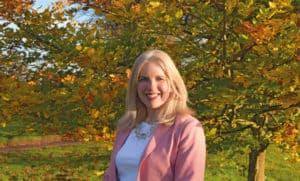 How has your trading desk evolved with remote working conditions?
How has your trading desk evolved with remote working conditions?
We have experienced a rapid evolution under remote working conditions. When we first went remote, I think universally we were all extremely nervous about the prospect.
All our dealers sit close to the portfolio managers and they are used to maintaining communication throughout the day. A year on, everybody is now very settled in the remote environment. We have adapted to new ways of communicating and the new infrastructure works well. I have the same set up in my sitting room as I have in the office.
The communication was the hardest part for us and that was where we had to put the work in but now, we use a variety of different technologies and we have those communication lines open all day in the same way that we did in the office. The reality is that the days of having all the portfolio managers sitting nearby are gone and so we will have to continue to be more reliant on the virtual communication tools rather than our traditional voice.
Managing a hybrid desk with a mix of dealers and portfolio managers who are in and out of the office will present a new challenge. It could create a two-level team and we need to ensure everyone remains on a level footing. When working in the office it is easy to have a five-minute chat but the key is ensuring the right people are involved in those conversations. If it needs to be a conversation with all the equity dealers and one of them is working from home then that conversation needs to be had virtually. Presentism is very prevalent in our industry and that is something I want to guard against in the hybrid model. It is not about who is sitting in the office, it is about who is doing the work and making sure that we are involving everybody.
What were the main challenges for your team in adapting to the changes?
The main challenge was communication. People were used to just shouting over to one another and that all had to become virtual. At the start, I insisted on over-communication to minimise the risk of things being authorised incorrectly or instructions not being fed through properly. The second challenge was the technology. For the first four to six weeks we were using a network that had never been set up to have that many members of staff online remotely. If there were connectivity issues then people were asking to stagger logging on in the morning. There was also a list of people who were critical users and took priority if access was limited.
Has it become more difficult to recruit new talent during the pandemic? If so, how have you overcome these difficulties?
The individuals that have been hired during this period have never physically met any of their team and indeed the people they are reporting into. It is the little conversations that you have during the day in the office that are important and these are being missed. As a manager, it is also harder to keep an eye on your team and make sure they are ok. For these reasons, when offices reopen, I will insist on a certain number of days a month that the full team are in.
I am, however, hoping that these new flexible working conditions will give us greater ability to select more diverse talent. Things like no longer needing to travel into work will encourage different types of people to apply. Our organisation among others is talking about reducing the desk capacity in our offices globally. There is an acceptance there that remote working is an option for people that want it and I hope that that does help to recruit a more diverse group into the organisation.
How important is it to align cross-asset datasets on the trading desk and can this improve execution performance?
I think it is important to try but not to kill yourself trying because there are always going to be key differences across those assets. What is very important for me is to align the policies and the processes, meaning anybody looking at it would see common principles applied no matter the asset class. That helps to improve the execution performance because you can see not only the full audit trail but also the full thought process in terms of how you came to that conclusion to execute that deal with that broker. I am continuing to push very hard on the desk for the continued use of that information for future decisions. That is something that is still evolving on the desk.
When you look at now compared to three years ago it is delivering a more consistent execution performance. It is very rare now to have those outliers because everything is following a similar workflow. I am still grappling at the other end with the on-desk post-trade monitoring. Aligning that is more difficult. Clients get a better outcome when looking at that from a common footing. I want consistency across the asset classes, it is not about one dealer saying look how good I am in this asset class.
Which panel sessions at TradeTech this year are you most looking forward to attending?
Data is a big headliner for me. Especially, when you look across the different asset classes. There are two panels on data and analytics which I have got my name down for. I am also looking forward to the diversity and inclusion and the ESG trading desk panels. I often look at our desk to see what we can do with ESG at the very core our investment process.